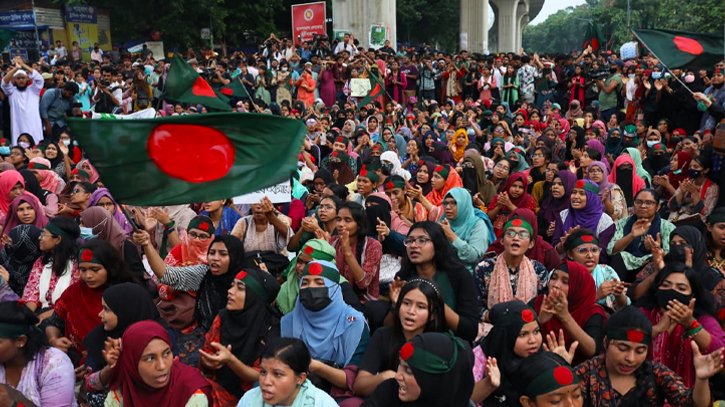The quota reform protests began in 2018 but were quickly suppressed through harsh tactics. Recently, the movement has reemerged due to government indecision, rallying students from both private and public universities across the country. This resurgence reflects the deep connection people feel to the cause, as many find the demands reasonable.
In recent years, no other protest has mobilized as many students. The widespread participation stems from the frustration of graduates who struggle to find jobs commensurate with their education. Compounding this issue are rampant corruption and irregularities in government job recruitment, fueling anger among students and graduates alike.
Today’s youth face the paradox of jobless growth; while the economy appears to grow, job creation remains stagnant. Numerous public sector vacancies exist, especially in education and health, yet the uncertainty around job prospects is overwhelming. Many students are considering leaving the country, while those unable or unwilling to emigrate feel particularly disheartened by the bleak job landscape. These students are at the forefront of the protest movement.
The Bangladesh Civil Service (BCS) is viewed as the most secure job opportunity; however, the current quota system in BCS exams leaves many feelings marginalized. There’s a widespread belief that talent and merit are not appropriately valued. Issues like question leaks, favoritism, and corruption contribute to the perception that many job opportunities are lost unethically.
In response, students are uniting to demand change, hoping to amplify their voices against these injustices. Unfortunately, the government’s response has been dismissive. In 2018, when protests were at their peak, the government eliminated quotas entirely, a move that did not align with protesters’ demands for meaningful reform. While over 50% of jobs were initially allocated through quotas, the total removal adversely affected those who truly need support, including minority groups and individuals with disabilities.
The high court deemed the government’s complete removal of quotas illegal, leading to the current protests that have spread nationwide. Students from various institutions are now demanding a thorough reform of the quota system.
The government claims it cannot intervene due to ongoing legal proceedings, yet the High Court ruling indicates that reform is possible if the government chooses to act. This stance misrepresents the court’s message and shows a lack of willingness to engage with student concerns.
Had the government formed a committee to address students’ demands and ensure protection for those who genuinely need quotas, many of these issues could have been resolved. Instead, the government has opted for hostility, labeling protesters negatively and inciting further unrest. Even Prime Minister’s comments have been derogatory, escalating tensions.
In response to the protests, the Bangladesh Chhatra League (BCL) has resorted to violence, with reports of police brutality, including the use of batons and tear gas against peaceful demonstrators. Tragically, several protesters have lost their lives. This reflects a troubling trend of the government responding with authoritarian measures to public demands.
Historically, when citizens, including students and labor groups, advocate for their rights, the government has reacted with violence and misinformation. This approach sends a clear message: ordinary citizens are not entitled to voice their concerns. Anyone who dares to dissent faces severe repercussions.
The government is complicating a straightforward issue raised by students who simply seek fair opportunities based on merit. When students are attacked for demanding recognition of their qualifications, it constitutes an attack on the nation as a whole.
As citizens, we feel the pain of this situation. We demand an end to violence against students, a shift in the government’s approach, and a commitment to listening to their demands. It’s time for a constructive dialogue to address these pressing issues.






